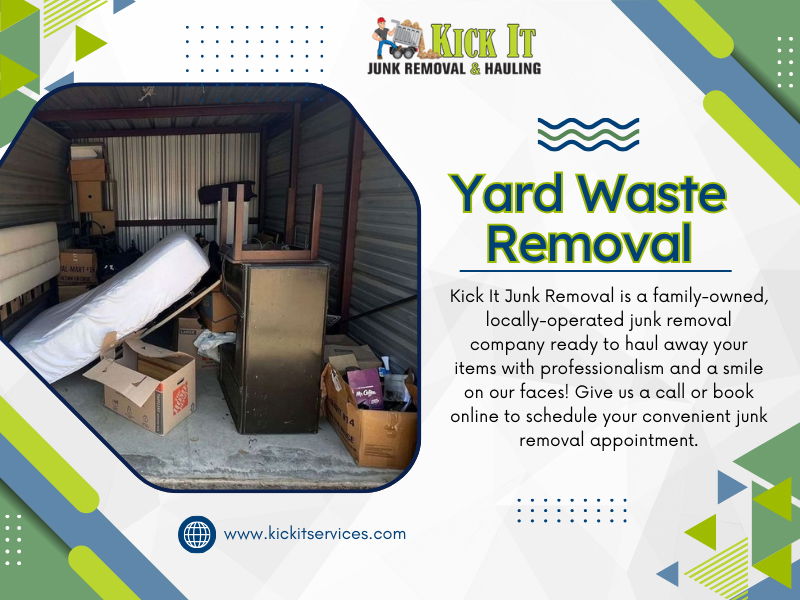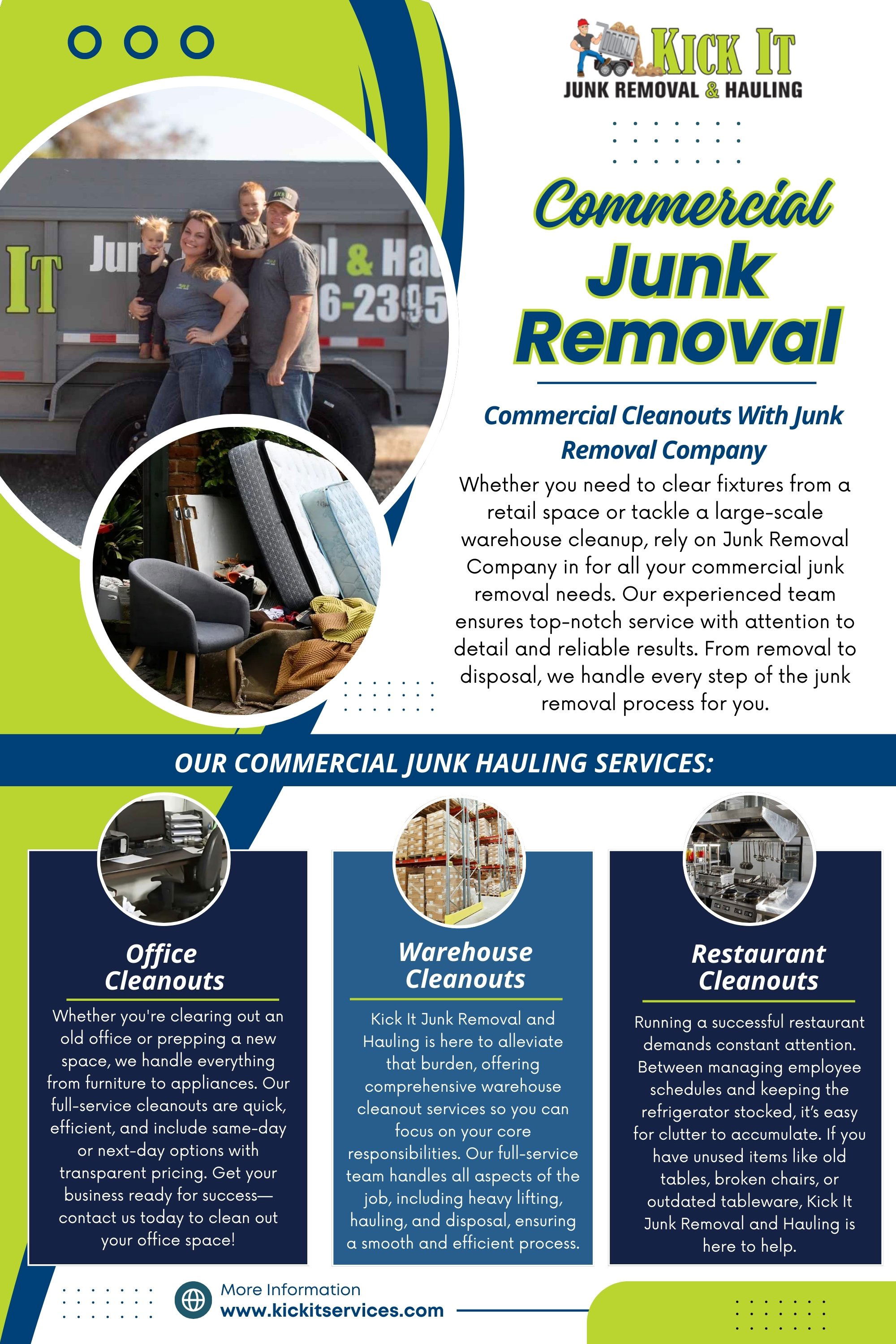Yard Waste Removal
Efficient Yard Waste Removal: Best Practices and Benefits
A well-maintained yard enhances the aesthetic appeal of your home, contributes to a healthier environment, and boosts property value. Yet, keeping your outdoor space pristine involves more than mowing the lawn or planting seasonal flowers. One of the most crucial—and often overlooked—elements of yard maintenance is yard waste removal. Whether you're tackling routine landscaping tasks or managing the aftermath of a storm, removing debris efficiently is key to keeping your yard safe, healthy, and beautiful.

This article explores the best practices for yard waste removal, the environmental and visual advantages of proper disposal, and how professional services can offer significant support to homeowners striving to maintain an attractive and sustainable outdoor space.
What Is Yard Waste?
Before diving into best practices, it's important to define what qualifies as yard waste. Also known as green waste or garden waste, yard waste includes:• Grass clippings• Leaves• Branches and twigs• Weeds and plants• Tree stumps and logs• Mulch and soil (in some cases)This type of waste accumulates quickly, especially during seasonal clean-ups, home improvement projects, or after harsh weather. Unlike regular household garbage, yard waste requires specific handling and disposal methods to ensure safety and environmental compliance.
Why Efficient Yard Waste Removal Matters
1. Enhances Curb AppealA cluttered yard strewn with leaves, branches, and other debris can give your property an unkempt look. Efficient yard waste removal helps maintain a neat, organized appearance, increasing the aesthetic appeal of your outdoor space. For homeowners planning to sell their homes, a well-groomed lawn can significantly impact first impressions and, ultimately, property value.
2. Promotes Lawn and Plant HealthAccumulated debris can suffocate grass and plants, blocking sunlight, water, and air from reaching the soil. This can result in yellowing patches, dead zones, or disease outbreaks. By regularly removing yard waste, you ensure that your landscape receives the nutrients it needs to thrive.
3. Reduces Pests and HazardsPiles of organic waste can become breeding grounds for insects like mosquitoes, ticks, and termites. They may also attract rodents or snakes. Additionally, sharp branches or hidden debris can pose safety risks to children and pets. Efficient waste removal eliminates these hazards, keeping your yard safer and more enjoyable.
4. Supports Environmental SustainabilityImproper disposal of yard waste—such as burning or tossing it in the trash—can have serious environmental consequences, including air pollution and overflowing landfills. When handled correctly, however, yard waste can be repurposed into mulch or compost, enriching the soil and reducing the need for chemical fertilizers.
Best Practices for Yard Waste Removal
Proper yard waste management doesn’t have to be complicated. Implementing a few best practices can simplify the process and ensure you're doing your part for the environment.
1. Regular Maintenance ScheduleEstablish a routine for yard clean-up, particularly during seasons when leaf and debris accumulation is high (spring and fall). Consistent maintenance makes the job less overwhelming and prevents large build-ups.
2. CompostingComposting is a sustainable way to repurpose yard waste into nutrient-rich soil. Grass clippings, leaves, and small branches decompose naturally, providing an excellent source of organic matter for gardens. Composting also helps reduce your overall waste output.
Tips for Composting Yard Waste:•
Shred larger branches to speed up decomposition.• Alternate green (nitrogen-rich) and brown (carbon-rich) materials.• Keep your compost pile moist and aerated.
3. MulchingMulching is another environmentally friendly method for dealing with yard waste. Wood chips and leaves can be used as ground cover to suppress weeds, retain moisture, and protect plant roots from extreme temperatures.
4. Municipal Yard Waste ProgramsMany cities and towns offer yard waste collection or drop-off programs. These services typically operate on a seasonal basis and accept bagged leaves, bundled branches, and other organic debris. Check with your local waste management authority to understand guidelines and schedules.
5. Proper Bagging and BundlingIf you’re disposing of yard waste through curbside collection, ensure it’s properly bagged or bundled according to local regulations. Biodegradable bags are preferred for environmental reasons. Tie branches securely in manageable bundles and avoid mixing yard waste with household trash.
The Role of Professional Yard Waste Removal Services
While DIY methods can be effective for routine yard work, large-scale clean-ups or storm aftermath often require professional assistance. Hiring a specialized yard waste removal service offers several benefits:
1. Time-Saving ConvenienceProfessionals handle the heavy lifting, saving you hours of manual labor. This is especially valuable after extensive yard work, landscaping renovations, or severe weather events that leave your yard buried in debris.
2. Proper Disposal and RecyclingProfessional services are well-versed in local regulations and sustainable disposal methods. They often partner with composting facilities or recycling centers, ensuring your waste is handled responsibly.
3. Equipment and ExpertiseHeavy-duty equipment like wood chippers, shredders, and hauling vehicles make removal faster and more efficient. Professionals also know how to safely handle hazardous materials like thorny plants, poison ivy, or large tree limbs.
4. Enhanced ResultsWhen you hire a yard waste removal service, you’re not just getting debris hauled away—you’re getting a cleaner, more polished finish to your landscaping project. Some companies even offer additional services like raking, sweeping, or minor repairs to turf and soil.
Choosing the Right Yard Waste Removal Service
When selecting a professional service, consider the following factors:
• Reputation: Look for companies with positive customer reviews and strong local presence.
• Certifications and Insurance: Make sure they are licensed, insured, and compliant with local waste disposal laws.
• Pricing Structure: Understand their pricing—whether it's flat rate, per load, or hourly—and ask for a written estimate.
• Sustainability Practices: Opt for services that emphasize recycling and eco-friendly disposal.

Final Thoughts
Efficient Kick It Junk Removal is more than just a chore—it’s a vital component of home and environmental maintenance. By adopting best practices like composting, regular clean-ups, and leveraging municipal or professional services, homeowners can create cleaner, healthier, and more sustainable outdoor spaces.Whether you’re a weekend gardener or managing a full-scale landscaping project, making waste removal a priority will save time, enhance curb appeal, and contribute to a greener planet. And when the task becomes too big to handle alone, don’t hesitate to call in the pros. Your yard—and the environment—will thank you.
